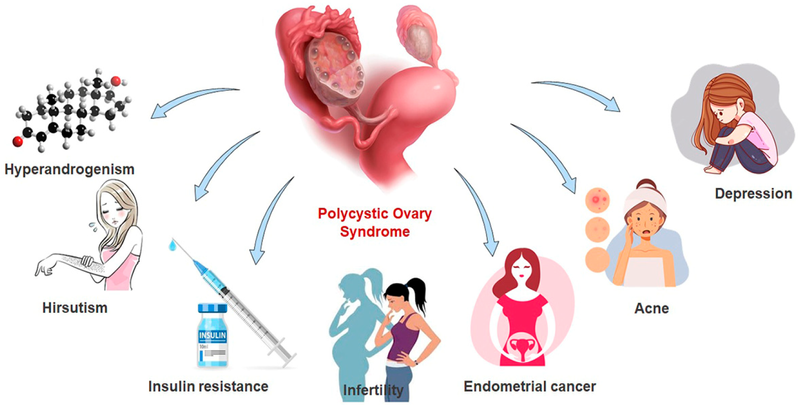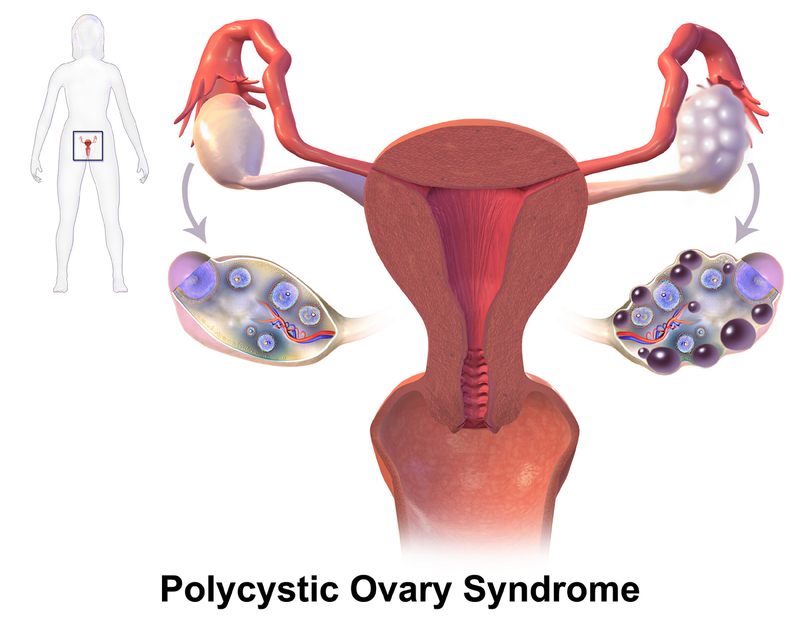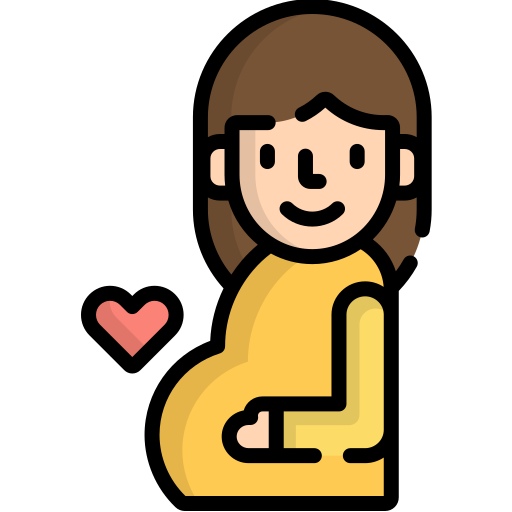Does it seem like your body’s doing its own thing — and not in a good way? 😩
Irregular periods, stubborn acne, weight that won’t budge, and hair growing in places it shouldn’t?
 Photo by Jonathan Cosens Photography on Unsplash
Photo by Jonathan Cosens Photography on UnsplashIt might be more than just stress or hormones. You could be dealing with PCOS —polycystic ovary syndrome — a super common, but often misunderstood condition that affects how your ovaries work.
Causes of PCOS: Why Does It happen?
Experts don't know exactly what causes PCOS...

...but what is known is that women with PCOS tend to have high levels of insulin. Increased insulin can lead to the excess production of male hormones, which can prevent the ovaries from releasing eggs normally.
Another cause can be your family history or genetics. If your mom, sister, or aunt has PCOS, chances are you could have it too.
Doctors and researchers are still investigating the full picture, but these factors seem to work together to cause PCOS.
Symptoms of PCOS: What to Watch for
Symptoms of PCOS vary. The most common symptoms include:
irregular periods (or none at all)
excess hair on your face and body (hirsutism)
hair loss or balding
acne
weight gain, especially around the belly
difficulty getting pregnant
many cysts in your ovaries
 Image from Yasmin, A., et al. (2022). Clinical manifestations of polycystic ovary syndrome (PCOS) [Image]. Life, 12(12), 1974. https://doi.org/10.3390/life12121974, CC BY 4.0
Image from Yasmin, A., et al. (2022). Clinical manifestations of polycystic ovary syndrome (PCOS) [Image]. Life, 12(12), 1974. https://doi.org/10.3390/life12121974, CC BY 4.0
Not all women with PCOS will have every symptom. Some women only have mild symptoms, while others may experience more severe issues. The key is to know your body and pay attention to any changes, particularly if your menstrual cycle becomes irregular.
Other things you should keep in mind are that women with PCOS tend to have other health conditions like:
type 2 diabetes
high blood pressure
high cholesterol
heart disease
cancer in the inner lining of the uterus

Body changes caused by PCOS can affect women's mental health, causing issues such as depression, anxiety, negative body image, eating disorders, and mood-related disorders.
And because there's a lack of information about PCOS and stigma surrounding obesity, hair growth, and infertility, it can affect social relationships — family, friends, work, etc.
Diagnosis: How do you know you have PCOS?
Getting diagnosed with PCOS can be a bit tricky because the symptoms often overlap with other conditions.
Your doctor will likely ask about your menstrual cycle and any symptoms you’ve noticed.
They may also run blood tests to check hormone levels.
They might do a pap smear or an ultrasound to look for cysts on your ovaries.
 Image from BruceBlaus, CC BY-SA 4.0 via Wikimedia Commons
Image from BruceBlaus, CC BY-SA 4.0 via Wikimedia Commons
To be diagnosed with PCOS, doctors typically look for 2 out of these 3 main criteria:
Irregular or no periods
High androgen (male hormone) levels
Polycystic ovaries on an ultrasound
It’s important to get a proper diagnosis so you can start managing your symptoms early.
Treatment Options: Managing PCOS
Although there’s no cure for PCOS, there are many ways to manage it! Treatments can be through medications, lifestyle changes, or a bit of both, and can depend on whether you plan to get pregnant.
 If you plan on being pregnant:
If you plan on being pregnant:
Fertility medications can help with releasing eggs (ovulation).
Surgery can remove androgen-producing tissues.
In vitro fertilization (IVF) can offer another way to get pregnant.
 For others, treatments can vary:
For others, treatments can vary:
Birth control can help regulate your period and reduce extra hair growth.
Diabetes medicine can help lower insulin resistance.
Lifestyle changes like a balanced diet and regular exercise can reduce weight/obesity and the risk of type 2 diabetes.
Other medicines are available to help with extra hair growth and acne.
The best treatment plan will depend on your symptoms and your goals — whether you’re focused on managing PCOS for long-term health or aiming to get pregnant.
Quiz
You’ve just been diagnosed with PCOS and are considering treatment options. Your doctor suggests starting with lifestyle changes. Which of the following should you focus on to help manage your symptoms? Choose all that apply:
Living with PCOS: Lifestyle Changes That Help
Living with PCOS means making some adjustments to your lifestyle, but these changes don’t have to be overwhelming.
Regular exercise can help reduce insulin resistance.
A healthy diet low in processed sugars can help manage weight and hormone levels.
Stress management techniques, like yoga or meditation, can also help regulate your hormones.
Lifestyle changes are often the first step in managing PCOS, and they can have a huge impact on how you feel. Even small changes, like taking a short walk daily or cutting back on sugary snacks, can make a big difference over time.
 Photo by Kirill Balobanov on Unsplash
Photo by Kirill Balobanov on UnsplashIn Real Life
Simone, a 25-year old living with PCOS, suggests the following actions, which have helped her during her PCOS journey:
Work with a dietitian.
Learn more about PCOS.
Do yoga, go on walks, and exercise.
Go to therapy to process PCOS-related issues.
Advocate for yourself — do your own research, or try to find healthcare professionals who will listen to your concerns.
What worked for Simone or what she experienced can look different for you and other PCOS patients. Be patient — there are resources and support options out there. You just need to find what works for you during your PCOS journey.
Take Action

PCOS may sound overwhelming, but understanding the condition is the first step toward managing it. You can take control through lifestyle changes, medical advice, and by being mindful of your body.
While there isn’t a one-size-fits-all solution, there are plenty of ways to improve your symptoms and feel more balanced.
Your feedback matters to us.
This Byte helped me better understand the topic.
